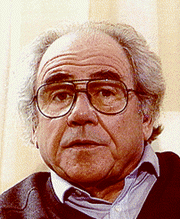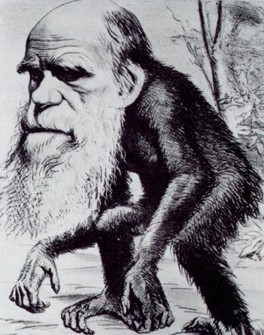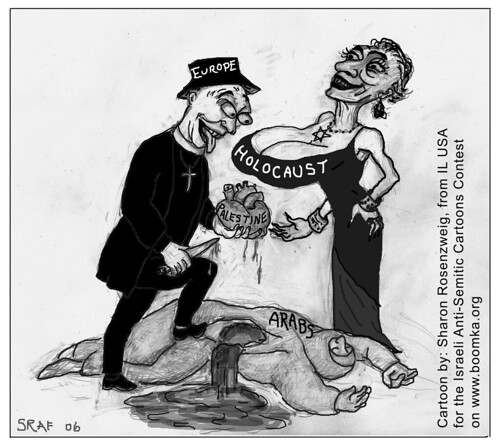
Late to the game, as ever, I've been catching up on
Rob Brydon's Annually Retentive. (Dig that ambiguous apostrophe!) If you're even further out of the loop than I am, it's
Have I Got News For You meets
The Larry Sanders Show. Brydon plays himself (or a Welsh comedian of the same name), hosting a fictional, derivative panel game. We see behind the scenes: the banal, demographic-obsessed production meetings; the preparation of 'spontaneous' quips; and, above all, 'Brydon''s pompous, thin-skinned, two-faced megalomania. And we see the 'show', which has all the trappings of
HIGNFY,
They Think It's All Over,
Buzzcocks and all those other repositories for moderately competent circuit comedians. The attention to detail makes it convincing (the obvious question being, does the studio audience know it's not 'real'?), but because we see it in context, we know it's fake, and by extension, so are all the panel shows it mocks. Although, as Small Boo points out with a sigh, its fakeness does not stop me from shouting out the answers.
What Brydon is doing is, of course, not new. Before
Larry Sanders, Garry Shandling played 'himself' in
It's Garry Shandling's Show (
"This is the music that you hear as you watch the credits/We're almost to the part of where I start to whistle..."), which was, in turn, suspiciously like the almost forgotten
Kelly Monteith Show. Then, of course,
Seinfeld had a character called 'Jerry Seinfeld' (played by Jerry Seinfeld) surrounded by characters who seemed less 'real', more 'extreme', partly because the actors didn't share their names. Although one of them (George) was clearly based on the show's co-creator, Larry David - who then came up with his own show, in which he played a character called...
Annually Retentive seems to owe even more to Bob Mills' notorious flop
The Show; the key difference being that the backstage bits in the Mills offering were real. Or were they? Well, certain stars complained because they felt they'd had their privacy invaded. Or did they? The fact that Mills ('Mills'?) appears as a panellist on 'Brydon''s fake show adds to the fun.

There seem to be two forces at work here. One is that producers now accept that audiences are relaxed about post-modernism, self-reference, metafiction and all that fancy French stuff, even if they can't put a name to it. The other is that performers now need to show that they don't take themselves too seriously. This is a fairly recent development: look at the difference between Peter Falk, playing Peter Falk straight in
Wings of Desire (1987) and the character-self-assassination implicit in
Being John Malkovich, just 12 years later. The extraordinary sight, in
Extras, of 'Les Dennis' being informed of his cuckold status with his saggy arse ('arse'?) on display, is just a logical progression.
But there's a subtle difference. Malkovich and Dennis have taken the public perception of themselves, their lives, their personalities, and used them to make a particular character.
"Fair enough, there are bits of us here," they say.
"But this is clearly a self-caricature. We know we're not perfect, but by doing this, we're proving ourselves to be a bit less imperfect than you might have thought." Brydon, however, never seems to be out of character, even in the 'reality' of an interview situation. In the past, there was always a bit of
Keith Barratt-style loserdom about him; now, I suspect, the 'Rob Brydon' style arrogance will resurface, even when it's Rob Brydon (no quotes) on the guest list.
We know more about the life of his colleague Steve Coogan (Ferraris, coke and shagging on a bed of money, apparently), but his own personality is still a mystery; any difficult question and he'll pull in Alan Partridge or Gareth Cheeseman to fend it off. He too has gone the Malkovich route, portraying 'himself' in Jim Jarmusch's underrated
Coffee and Cigarettes as a complete shit, snubbing 'Alfred Molina''s overtures of friendship until he finds out that 'Molina' has Spike Jonze's phone number. (Jonze, of course, directed
Being John Malkovich.)
Brydon and Coogan, of course, play themselves, playing roles (if, in fact, 'themselves' are not roles) in Michael Winterbottom's
A Cock and Bull Story, which, being based on the pioneer postmodern fiction
Tristram Shandy, is also about
Tristram Shandy, and about itself, as well as up itself. Or so I'm told. I haven't seen the film. But Coogan hasn't read the book. Or so he said.
(Winterbottom, of course, plays the po-mo thing as if it's second nature - the appearances in the Tony Wilson biopic
24-Hour Party People of the 'real' Howard Devoto, Clint Boon, Wilson himself being the most obvious examples - that when something 'real' happens, the audience is temporarily thrown. The sex in
9 Songs is 'real', because we can see the ins and outs and bodily fluids. But, because it's Winterbottom, and the non-boudoir action takes place at 'real gigs', we're constantly aware that they're actors, following a script, only 'really' sucking and fucking in the way that actors in a Woody Allen film are 'really' talking.)

Coogan and Brydon, then, are the next step in celebrity culture, keeping their 'real' selves hidden, or at least ambiguous, even when apparently taking the piss out of those very 'real' selves. And in the
Baudrillard sense - that's him on the right, by the way - say
"bonjour", Jean - doesn't he look like Ronnie Corbett? -
"le producteur dit à moi, il dit, Rrrronnie" - and who does the better Corbett impression, Coogan or Brydon? - and isn't the whole thing impressionism in a way? - post-modern post-impressionism? - in playing these versions of themselves, they have become true
simulacra. Because, since the real Brydon and Coogan are kept away from the public domain, 'Brydon' and 'Coogan' are representatives of things that (in a cultural sense) do not exist.
So why do I still feel the urge to shout out the answers?















